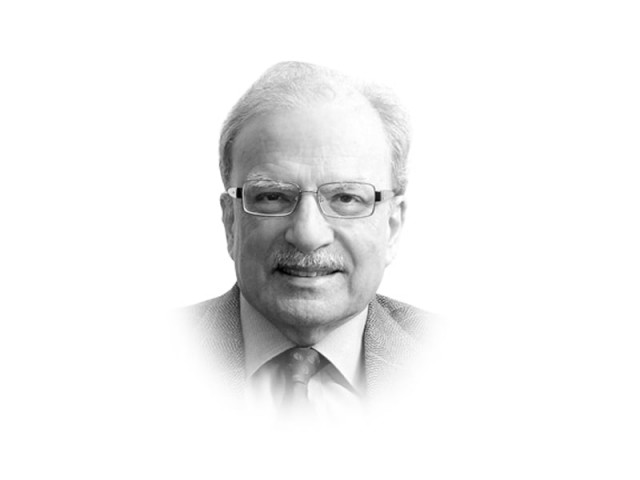Women to Pakistan’s rescue
Once women achieve their full potential, they will be able to lend a helping hand to rescue Pakistan economically.

Women now have a significant presence in the national and provincial legislatures. This is one area where General (retd) President Pervez Musharraf should be given full credit. It was as a result of the changes he made in the political order that women were able to increase their number in the legislatures. Women have entered the legislatures not only by being elected to reserved seats but many have won elections from open constituencies. Pakistan is one of the very few countries to have a woman as the speaker of the National Assembly. In a conversation a couple of months ago, with Dr Fehmida Mirza, she proudly pointed out to me her successful initiatives. She has organised a ‘women’s caucus’ in the National Assembly that includes legislators from all political parties. “They have been able to work together, unmindful of the fact that they come from different political organisations”, she said. They have introduced a number of bills aimed at improving women’s welfare.
Women are also occupying leadership positions in non-governmental organisations, especially those dealing with social issues. Combining this work, with what they have begun to do in politics, has made it possible for women to address some of the problems they face in the country. In addition, women have become entrepreneurs in many businesses.
What is impressive about the remarkable progress made by women is that it has resulted mostly from their own initiatives. Women are doing well in education, in large part because several female entrepreneurs established educational institutions which could be conveniently attended by girls with some comfort. Some of the largest school systems in the country, such as the Beaconhouse Schools, City Schools and Grammar Schools are products of women’s entrepreneurship and the business and pedagogical models for these schools were conceived by them. They provided the initial funding and are also being managed by women. Not only have women worked hard to improve the quality of education girls receive. It is women who are now also at the forefront of the fight against extremists who are dead set against female education. A brave teenager, Malala Yousafzai from Swat, has become the symbol of the struggle being waged by women in a country that is increasingly moving towards an extremist interpretation of Islam. The defiant campaign launched by almost cost her her life. Having survived the attack, she will be a beacon of hope for the Pakistani women.
Pakistan, although headed in that direction, is different in many ways from conservative Islamic societies. Saudi Arabia is a country many Pakistani citizens admire and would like to follow, in terms of its professed moral rectitude. However, it remains hostile towards women exercising their rights. It has failed to accommodate the very women in the work place that the state has paid to educate in foreign universities. There are 17,000 Saudi women studying in American colleges and universities. According to a report, “Saud Arabia has sharply reduced female illiteracy, virtually eliminating it among women ages 15 to 24.” But educated women, even those with foreign degrees are unemployed. “Unemployment among Saudi women who want to work is 34 per cent — almost five times as great as the seven per cent rate for men.”
Pakistani women have better opportunities compared to those in such conservative societies as Saudi Arabia. They are readily able to find jobs. They have also been able to become successful entrepreneurs. Well-educated women don’t come up against the brick wall that others face in several Muslim countries of the Middle East. Pakistani women are doing well in the work place and in the business world. They have established both formal as well as informal firms, in sectors such as education, communication, fashion and microfinance.
The contribution that women have already begun to make to the economy, and are likely to make even more significantly, applies mostly to the urban areas. In the above referred conversation with Dr Fehmida Mirza, she emphasised that women remain economically and socially distressed in the poorer districts of the country. She used Badin, her district in southern Sindh, as an example of how much work women do both inside and outside their homes but in spite of that their economic situation remains poor. Women are advancing but still have a long way to go. Once they achieve their full potential, they will be able to lend a helping hand to rescue Pakistan from its current economic travails.
Published in The Express Tribune, November 19th, 2012.















COMMENTS
Comments are moderated and generally will be posted if they are on-topic and not abusive.
For more information, please see our Comments FAQ